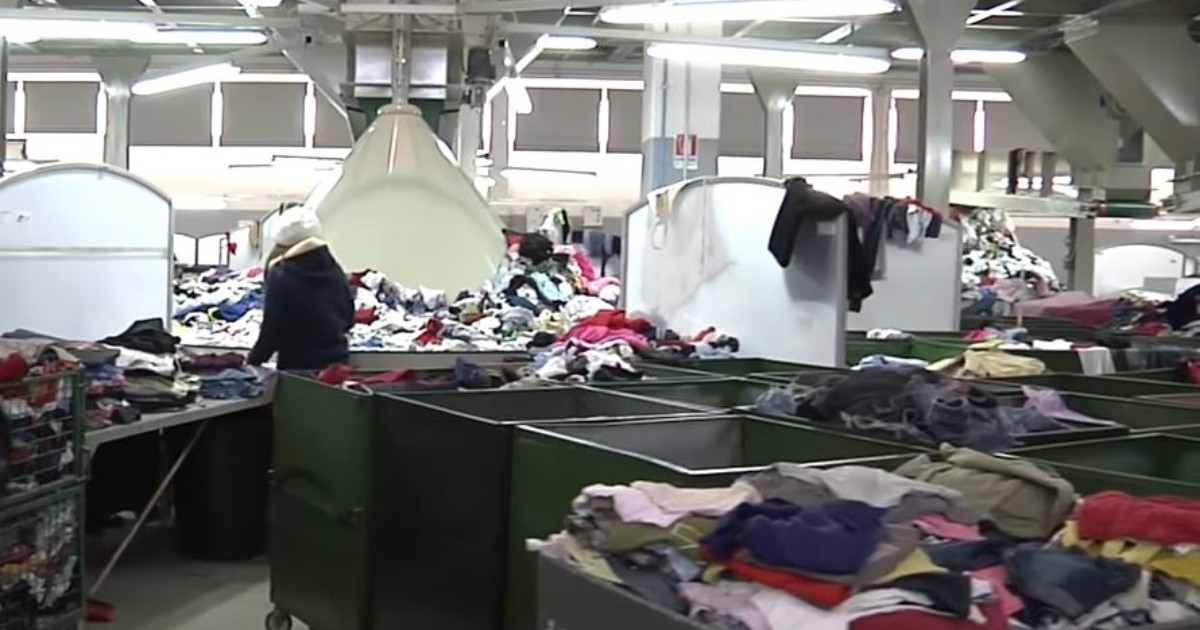Chains of used shops on behalf of third parties such as The Market, but also online platforms such as Subito.it e Vinted.it, have seen growth of 17% between 2015 and 2019, bringing the estimated overall turnover of reuse activities to beyond 2 billion euros year, excluding used cars. However, this trend is not valued by the public sector because – as emerges from a survey Ispra – only in two Italian regions (Emilia Romagna e Lombardy) Municipalities are virtuous in providing services that facilitate the reuse of goods for the reduction of waste.
How much is the market worth
The framework ofcircular economy of goods in Italy – in particular furnishings e clothes, but also strollers, crockery, furniture, sports equipment, books – is provided by the “National Reuse Report” produced by“Eye of the Recycler Italy” Observatory in partnership with Rete ON, trade association of reuse operators, e Labelab Srl, a consulting company specializing in the waste cycle. According to the study, thrift stores third parties in 2019 they exceeded the threshold of 400 million euros in annual turnover, while the online used platforms, in the same period, saw a global turnover of 230 million euros annually (which however correspond to a few billion in terms of transactions between individuals). By adding the revenues of street markets (stable in the figure of 950 million in revenues annui), second-hand shops, non-profit shops, and the trade in used clothing, the researchers estimated an overall turnover of the sector at approx 2 billion per year and a total of employees between 80,000 and 100,000 people.
Used online: millionaire investments, but loss-making budgets
Trading used goods online – often seen as the future of reuse – has yet to prove it can achieve one economic sustainability, according to the data collected by the editors of the report. Eye of the Recyclone analyzed i balance sheets of the last few years of the leader of the online platforms Subito and Vinted, identifying repeated losses over the years. The analysis carried out by Occhio del Riciclone shows how Subito lost from 2013 to 2019 beyond 45 million euros and how Vinted lost almost 23 million euros between 2017 and 2019. International investment funds continue to allocate huge amounts to second-hand online platforms every year: “Vestiaire Collective, Depop and Vinted alone have attracted around € 1 billion over the past 10 years investments, and almost half of this figure corresponds to the first half of 2021 ”.
The collapse of revenues from the trade in used clothes
The study also points the finger on the used clothing sector, where “the radical increase in tons collected, which grew by 22% between 2015 and 2019, corresponds to a 13% drop in turnover”. The reasons are due to various factors, such as the collapse of market prices, the higher costs. For the associations that drafted the report this situation “inevitably breaks the points of balance economic making it essential, for the survival of the sector, the introduction of effective regimes “Extended producer responsibility” that bind producers to finance the recovery chains “.
Preparation for reuse “could avoid 600 tons of waste”
The Reuse Observatory has estimated that the reusable waste that could be immediately put back into circulation without repairs or reconditioning, and with a good market price, “amounts to 600,000 tons per year and have a final annual value of one billion and six hundred million euros “. However – despite the environmental law 152/06, the Ministry of the Environment to adopt a national waste prevention program that provides services that encourage reuse – the municipalities of almost all Italian regions are lacking in offering them.
The (few) equipped Municipalities
With its “First fact-finding survey on municipal waste prevention measures adopted by municipalities” (January 2021) carried out starting from the declarations of a sample of 325 Municipalities and adding up a total of almost 8 million inhabitants, Ispra has collected data according to which three quarters of the municipalities in which “are present repair centers and preparation for reuse, exchange points and / or reuse centers ”and which are“ equipped with collection centers in which special spaces are provided for the exchange between private individuals of used and functioning goods directly suitable for reuse “are located in Emilia Romagna and Lombardy. In particular, the municipal administrations “equipped with collection centers in which specific areas are identified for the collection, by the Municipality, of reusable goods or to be destined for reuse through professional operators of used items authorized by local authorities and urban hygiene companies “, are only 30 (9.2% of the sample, including Parma, Rimini e Bergamo) of which nine in Lombardy, eight in Emilia, eight in Campania and only one in Lazio.
Twitter: @ludojona
–


